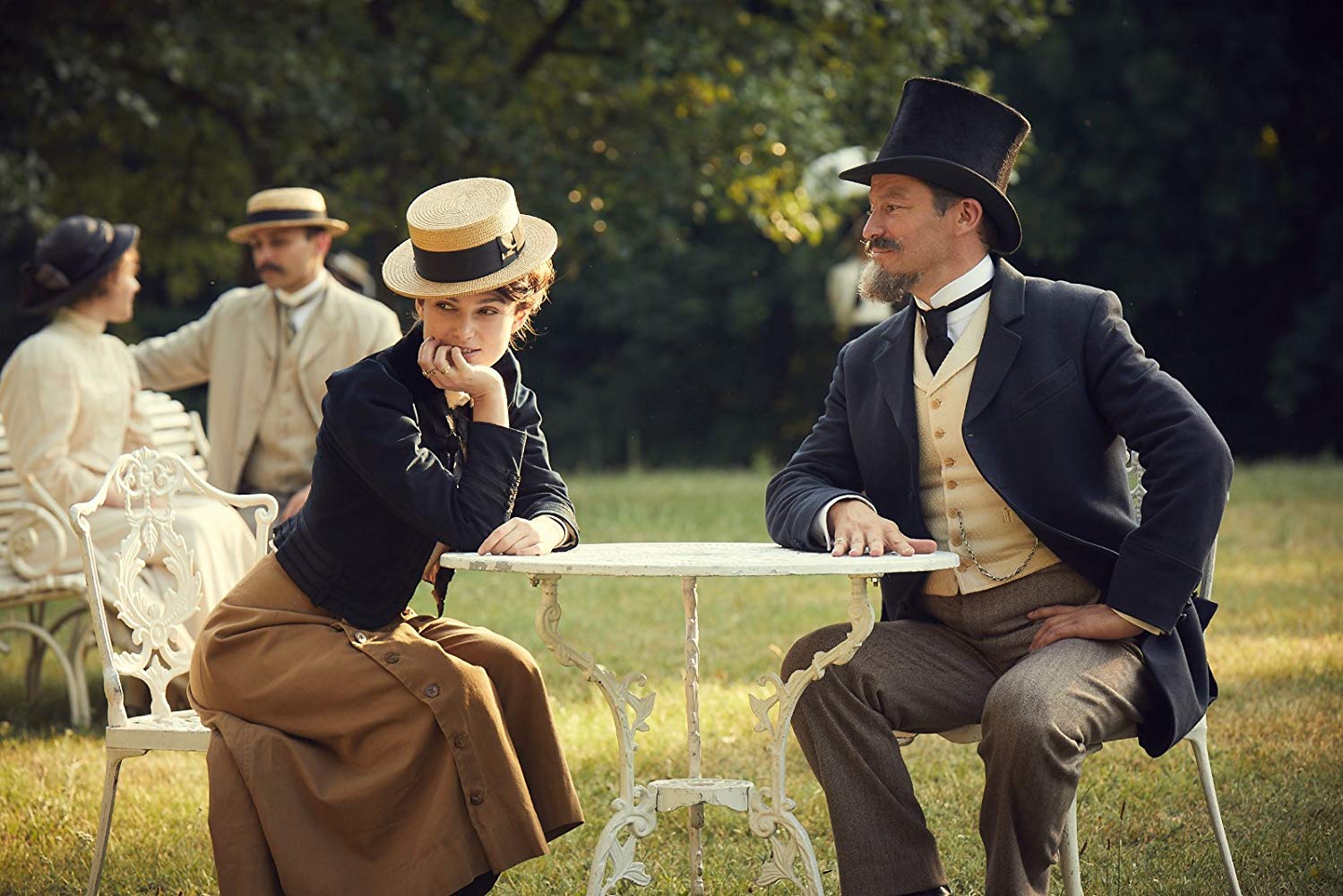Colette is the biographical story of Sidonie-Gabrielle Colette, a French author, performer and dancer during the late nineteenth century. Keira Knightley gives a sublime performance alongside Dominic West as ‘Willy,’ the controlling and unfaithful husband who coerces Colette to write under his name. With a strong-willed lead female, lesbian love interests and gender fluidity, Wash Westmoreland’s adaptation is a timeless portrayal of a female fight for freedom.
The film begins as a typical Victorian romance – Gabrielle (who is yet to change her name to Colette) appears young and naïve, besotted with the much older and experienced Willy. The two quickly marry and move to Paris away from Gabrielle’s rural home. While Willy seems to be a hopeless romantic and equally infatuated with his young bride, it soon comes to light that he is sleeping with the city’s prostitutes because ‘that’s what men do.’ Determined not to be deceived again, Gabrielle demands a more proactive role in their marriage and refuses to play the pretty wife who waits at home.
From here the narrative focuses more on the careers of the pair as Gabrielle becomes Colette in writing a novel for Willy. Together they create Claudine, a bold character based on Colette’s childhood. The book is a huge success, especially with young women, but falsely labelled as Willy’s own writing. However, some can see through the feminine style and become attracted to Colette for her talent. One such fan is Georgie Raoul-Duval (Eleanor Tomlinson) who entices Colette for a ‘nightcap.’ The women begin a sexual relationship which fuels the next Claudine novel but also ignites the demise of Colette’s marriage.
[embedyt] https://www.youtube.com/watch?v=Mqdyyk-iOvY[/embedyt]
Centred around a daring female author pursuing her own career while unashamedly exploring her sexuality, the film is an unconventional romance, especially in the setting of the Victorian era. While Colette is daring, the most progressive character is undoubtedly Missy (Denise Gough) who rejects all associations with femininity and eventually adopts a male pronoun. Westmoreland’s handling of gender and sexuality is a celebration of the real Sidonie-Gabriele Colette’s life and her revolutionary spirit.
At times the story feels unfocused and time-consuming but the actors’ interactions are captivating so the runtime of nearly two hours is forgivable. The music score draws you into the action and the shots in Hungary and Budapest are visually delicious. Above all the biopic pays homage to real people and their fight for acceptance in a timeless reimagining of Sidonie Gabrielle-Colette’s life.
Image source: IMDB

